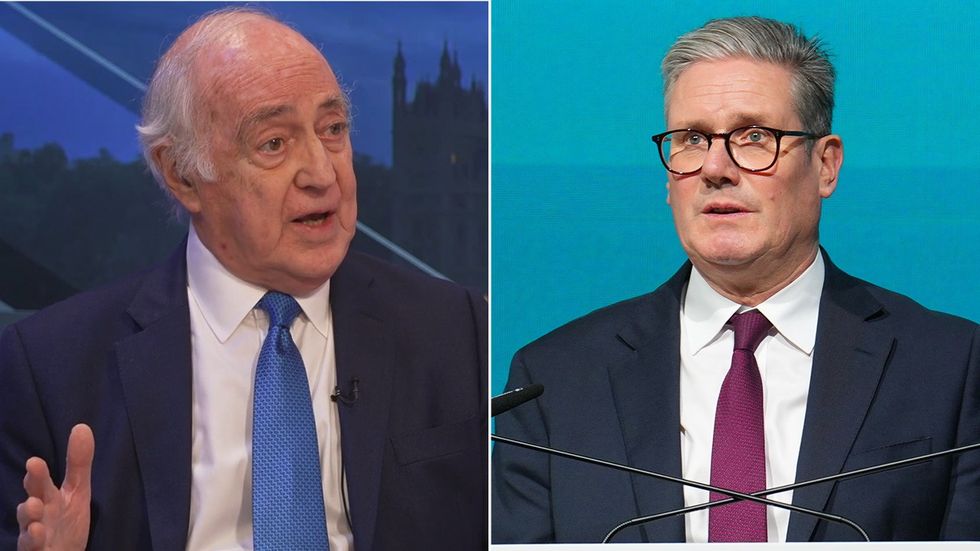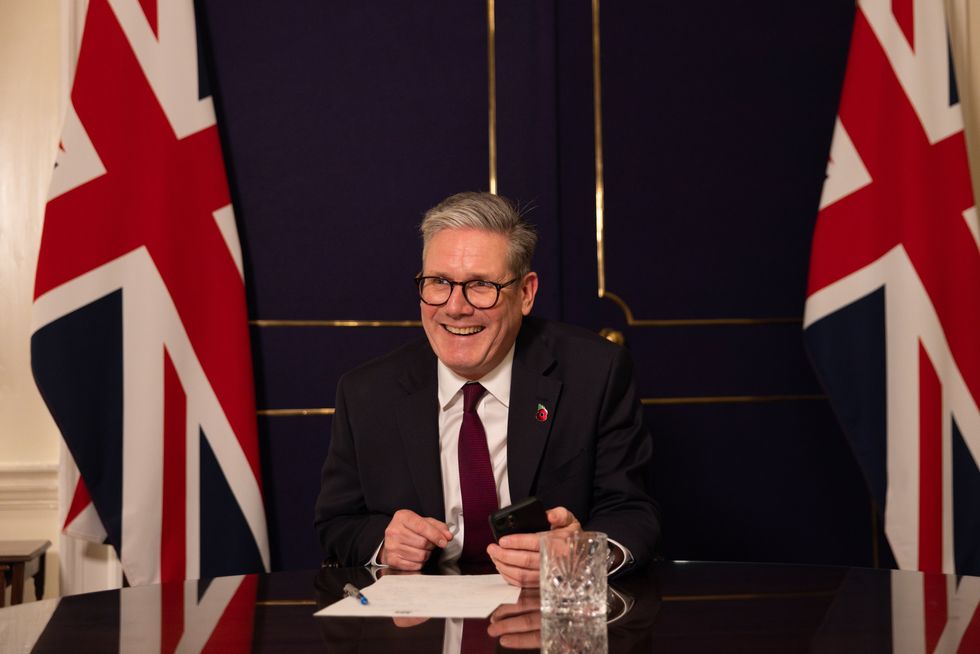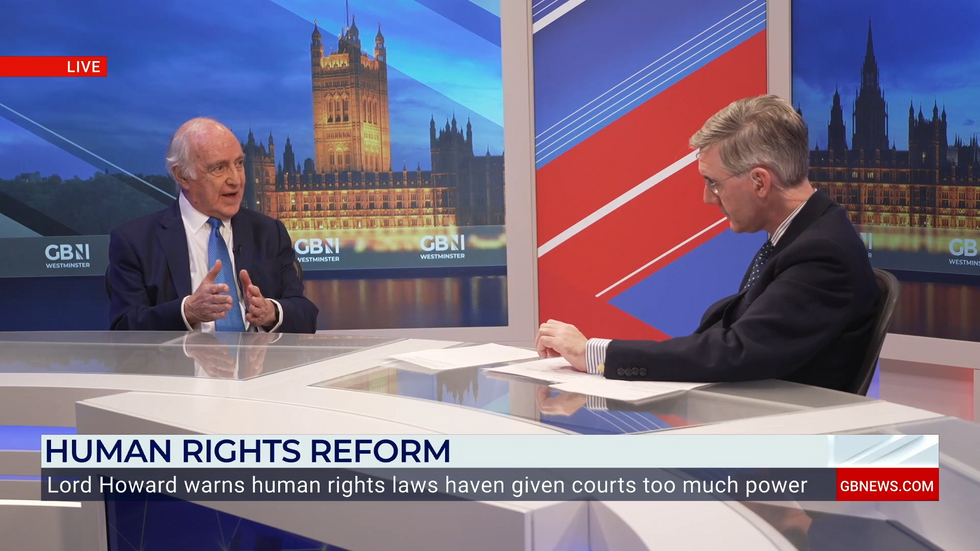Georgia Pearce
Guest Reporter
Former Conservative leader Lord Michael Howard has said Britain should not rule out withdrawing from the European Convention on Human Rights (ECHR), but emphasised this should be a "last resort and not a first".
Speaking on GB News, the Conservative peer warned that human rights laws have given courts too much power in the UK's judicial system.

Lord Howard suggested that addressing issues with the Human Rights Act should be prioritised before considering any withdrawal from the ECHR.
He noted that only Greece under military rule and Russia have previously withdrawn from the convention, adding: "That's not necessarily a company we'd like to keep."
In his GB News appearance, Lord Howard criticised how the Human Rights Act has altered the role of judges in Britain's legal system.
"The fundamental difficulty is that [The Human Rights Act] draws our judges into an area where they have to judge competing rights and interests," he said.
He argued these decisions should instead be made by elected politicians who are accountable to the public.

Lord Howard described judges as "the product largely of a kind of self-appointed oligarchy."
He explained that while Parliament enacted the Human Rights Act, this has required judges to interpret laws in accordance with the European Convention on Human Rights.
This interpretation, he argued, can lead to "a very strained interpretation and a distortion of what Parliament intended."
Lord Howard outlined his preferred approach to addressing concerns about human rights laws in Britain.
LATEST DEVELOPMENTS:

"I would deal with the Human Rights Act, and I would make that a priority, and then I'd wait and see how the Court of Human Rights behaved," he told GB News.
The Conservative peer highlighted that enforcement of European Court decisions lies with the Council of Europe, not the European Union.
He criticised British judges for following European Court decisions "rather slavishly and sometimes gone beyond them."
Lord Howard emphasised that Parliament retains the power to intervene when courts interpret laws incorrectly.
"Parliament does have that reserve power. But of course, Parliament has many things to consider, and those things don't always achieve the priority which they perhaps should," he added.
Lord Howard specifically addressed the recent Rwanda policy legal challenge in his GB News interview.
He pointed out that the decision blocking the Rwanda scheme came from UK courts rather than the European Court of Human Rights.
"The Divisional Court and the Lord Chief Justice then in the Court of Appeal, took the traditional view of judicial review and said the government was entitled to decide that Rwanda was a safe country," he explained.
However, he criticised the Supreme Court's approach, saying: "The Supreme Court, following slavishly a decision of the European Court of Human Rights said, it's for us to decide whether Rwanda is a safe country, not the government."
He concluded this was "completely alien to the role of the courts in our country."
Find Out More...
Speaking on GB News, the Conservative peer warned that human rights laws have given courts too much power in the UK's judicial system.

Lord Howard suggested that addressing issues with the Human Rights Act should be prioritised before considering any withdrawal from the ECHR.
He noted that only Greece under military rule and Russia have previously withdrawn from the convention, adding: "That's not necessarily a company we'd like to keep."
In his GB News appearance, Lord Howard criticised how the Human Rights Act has altered the role of judges in Britain's legal system.
"The fundamental difficulty is that [The Human Rights Act] draws our judges into an area where they have to judge competing rights and interests," he said.
He argued these decisions should instead be made by elected politicians who are accountable to the public.

Lord Howard described judges as "the product largely of a kind of self-appointed oligarchy."
He explained that while Parliament enacted the Human Rights Act, this has required judges to interpret laws in accordance with the European Convention on Human Rights.
This interpretation, he argued, can lead to "a very strained interpretation and a distortion of what Parliament intended."
Lord Howard outlined his preferred approach to addressing concerns about human rights laws in Britain.
LATEST DEVELOPMENTS:
- Pensions to be overhauled by Reeves in 'biggest reforms in decades': 'Grave mistake!'
- Tory MSP files complaint after 'identify as a cat' tweet recorded as non-binary hate
- Labour pledges to close ‘two tier’ electric vehicle charging gap

"I would deal with the Human Rights Act, and I would make that a priority, and then I'd wait and see how the Court of Human Rights behaved," he told GB News.
The Conservative peer highlighted that enforcement of European Court decisions lies with the Council of Europe, not the European Union.
He criticised British judges for following European Court decisions "rather slavishly and sometimes gone beyond them."
Lord Howard emphasised that Parliament retains the power to intervene when courts interpret laws incorrectly.
"Parliament does have that reserve power. But of course, Parliament has many things to consider, and those things don't always achieve the priority which they perhaps should," he added.
Lord Howard specifically addressed the recent Rwanda policy legal challenge in his GB News interview.
He pointed out that the decision blocking the Rwanda scheme came from UK courts rather than the European Court of Human Rights.
"The Divisional Court and the Lord Chief Justice then in the Court of Appeal, took the traditional view of judicial review and said the government was entitled to decide that Rwanda was a safe country," he explained.
However, he criticised the Supreme Court's approach, saying: "The Supreme Court, following slavishly a decision of the European Court of Human Rights said, it's for us to decide whether Rwanda is a safe country, not the government."
He concluded this was "completely alien to the role of the courts in our country."
Find Out More...